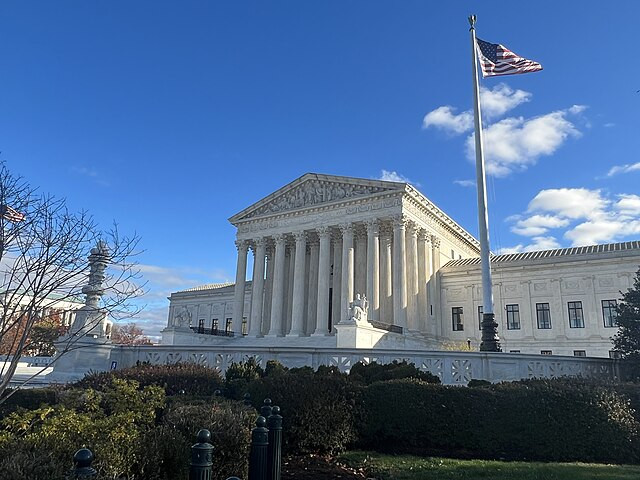In a ruling that is likely to reverberate through the upcoming 2024 election, the Supreme Court on Thursday partly granted a request from the Republican National Committee to enforce Arizona's proof-of-citizenship voting law. The decision, which allows limited enforcement of the controversial law, has ignited fresh debate over voter rights and election integrity in a state that has become a crucial battleground in national elections.
The justices, in a 5-4 vote, allowed one of the three provisions of the Arizona law to take effect, marking a significant victory for Republicans who have championed stricter voting regulations. The provision now permitted by the court requires that voters registering with the state's own registration form must provide documentary proof of U.S. citizenship. However, the court kept on hold two other provisions of the law that would have required proof of citizenship for voting in presidential elections or by mail if voters registered using a federal form.
The ruling came without an explanation, as is typical in emergency orders, but the division among the justices was clear. Conservative Justices Clarence Thomas, Samuel Alito, and Neil Gorsuch expressed their belief that all three provisions should have been allowed to go into effect. Meanwhile, Justice Amy Coney Barrett, often seen as a key conservative voice, sided with the court's three liberal justices in dissent, arguing that the law's enforcement at this stage could lead to voter confusion and potential disenfranchisement.
Arizona's 2022 law, which has never been enforced, was originally passed in response to unsubstantiated claims of noncitizen voting-a frequent topic of concern among some Republican voters. The Biden administration, along with several voting rights groups, challenged the law, arguing that it violated the National Voter Registration Act (NVRA). This federal law requires that those registering to vote in federal elections attest to their citizenship but does not require them to provide documentary proof.
The case underscores a broader national debate over election laws and voter access. Arizona, a state that narrowly swung in favor of President Joe Biden in 2020 by just over 10,000 votes, has been a focal point for discussions on election security and voter suppression. The GOP's push for stricter voting laws in Arizona is part of a larger effort across several states to implement more rigorous voting requirements ahead of the next presidential election.
State officials estimate that more than 40,000 people have registered to vote in federal elections in Arizona without providing proof of citizenship, although they note that most of these registrants are likely inactive voters. The new law, according to state Democrats, could disproportionately impact groups such as students, service members, and Native Americans, who may not have ready access to birth certificates or other documentation when registering to vote.
Secretary of State Adrian Fontes, a Democrat, had urged the Supreme Court to reject the Republican request, warning that changing the rules so close to the election could create chaos. Fontes emphasized that the potential for voter confusion and administrative burden was significant, given that early voting in Arizona is just weeks away. He also pointed out that many of those registered without documentary proof of citizenship are likely to be among the most vulnerable or marginalized voters.
"Blocking the lower court ruling would create uncertainty for voters and election officials alike and erode public confidence in the integrity of Arizona's election processes," Fontes' legal team argued in court papers.
The RNC and other Republican leaders in the Arizona Legislature, however, maintain that the law is a necessary step to preserve the integrity of elections and ensure that only eligible U.S. citizens are voting. They have argued that the law simply enforces existing citizenship requirements that are already part of Arizona's state elections.
The Supreme Court's decision is likely only the beginning of a series of legal battles over voting rights as the 2024 election approaches. The case has drawn widespread attention, not only because of its implications for Arizona but also because it could set a precedent for other states considering similar legislation. Critics argue that the law is a thinly veiled attempt to suppress voter turnout, particularly among demographic groups that tend to vote Democratic.






